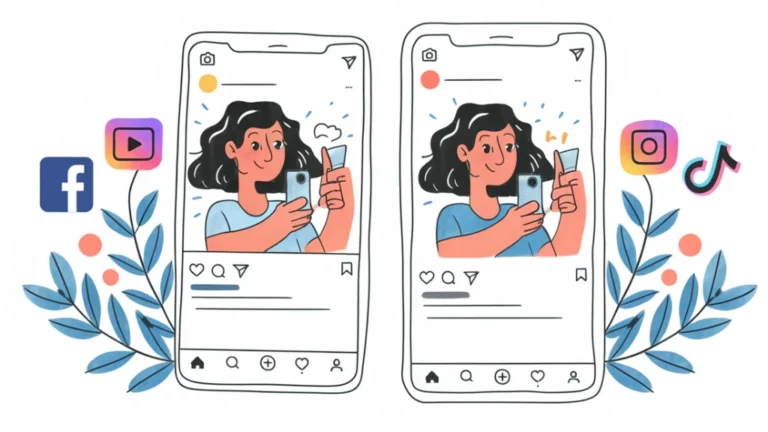In the digital era, personal branding isn’t just an accessory; it’s a necessity. But the way you approach it can vary wildly depending on whether you’re an influencer or an entrepreneur.
How Has the Digital Shift Changed Personal Branding?
The world is undergoing a seismic shift. We’re moving from a geography-based “old empire” to a digitally driven “new empire.” Gone are the days when gatekeepers like newspapers and TV dictated who got attention. Today, anyone with a smartphone and an idea can build a personal brand.
As an entrepreneur, this means you can bypass traditional barriers and connect directly with a global audience. You can launch a venture with a team and clients from over 150 countries, all without a physical office. The key? Crafting a brand around shared values and vision, not a location.
For influencers, the shift is equally empowering. The ability to digitize your value, reach your audience, and own your media presence has democratized fame. But with great power comes great responsibility, and plenty of pressure.
What Does Personal Branding Mean for Influencers?
For influencers, a personal brand is both your product and your persona. It’s about idea promotion over self-promotion. Think of it like this: The most captivating influencers don’t shout, “Look at me!” Instead, they say, “Look at this amazing idea I’m passionate about.”
But let’s be real... Social media can sometimes feel like a relentless performance. One of my biggest aha moments? Realizing that authenticity trumps perfection. You don’t have to dance for the algorithm or post every avocado toast you eat. The real win comes when your audience resonates with your ideas and joins your journey.
How Do Entrepreneurs Approach Personal Branding Differently?
For entrepreneurs, a personal brand isn’t just a “vibe”. It’s a strategic asset. While influencers often focus on storytelling, entrepreneurs use their personal brand to spotlight their business, build trust, and attract collaborators.
I’ve always viewed my personal brand as a beacon for my ventures. It’s about saying, “Here’s what I’m building. Want to join me?” Unlike influencers, who often monetize directly through sponsorships or views, entrepreneurs use their personal brand to drive value into their businesses. It’s less about the spotlight on me and more about shining a light on the mission.
What’s the Biggest Misconception About Personal Branding?
The misconception? That personal branding is about vanity or fame. Influencers and entrepreneurs alike often hear, “Oh, you’re just trying to be famous.” But the truth is far deeper. A personal brand is about connection and credibility.
Great personal branding isn’t self-promotion; it’s idea promotion.
Adam Grant
Whether you’re an influencer spotlighting a cause or an entrepreneur rallying people around your business, the best personal brands are rooted in purpose.
Can Personal Branding Be Collaborative?
Absolutely. One of the lessons I’ve embraced is the power of collaboration. For entrepreneurs, this means assembling a team that complements your strengths. I’m inspired by the British military’s team-building approach: two-person scout teams, four-person fire teams, and 30-person platoons. Translating this to business, I start with a co-founder or assistant, grow to a core team of eight, and scale from there.
Influencers, on the other hand, often collaborate with other creators. But the principle is the same: find people who bring out the best in you and align with your values.
What Role Does Content Play in Personal Branding?
Content is the currency of personal branding. For influencers, it’s their bread and butter: posts, stories, and videos that engage their audience. For entrepreneurs, content supports their business narrative. A blog post, podcast, or webinar can position you as an industry leader.
Launching a podcast can be one of the most transformative steps for your personal brand. It's like inviting people to sit around a virtual campfire, sharing ideas that mattered to you. The key here, is that consistency and authenticity build trust over time.
What’s the Emotional Side of Personal Branding?
Let’s not sugarcoat it: personal branding can be emotionally taxing. For influencers, there’s the pressure to stay relevant, deal with trolls, and maintain a facade. For entrepreneurs, there’s the challenge of vulnerability. Putting your name and reputation on the line.
A carefully crafted campaign flopped, leading to a deeply humbling experience. It’s easy to feel like a failure. But see these moments as lessons. Resilience and adaptability are the real superpowers here.
What Are Some Practical Tips for Building Your Personal Brand?
To create a valuable personal brand:
- Start with Your Why: Define your purpose. Why should people care about your story or business?
- Focus on Value, Not Vanity: Share insights, not just achievements. Offer value to your audience.
- Be Consistent: Post regularly. Engage genuinely. Show up authentically.
- Invest in Relationships: Whether it’s a dinner with potential collaborators or a heartfelt DM, connections matter.
- Stay True to Yourself: Don’t chase trends that don’t align with your values.
Final Thoughts: Can You Be Both an Influencer and an Entrepreneur?
Yes! In fact, blending these roles can be incredibly powerful. Influencers who pivot to entrepreneurship bring their audience along for the ride. Entrepreneurs who embrace personal branding humanize their business and build trust.
At the end of the day, whether you’re building an Instagram following or launching a startup, the core of personal branding is the same: share your vision, connect with others, and stay true to your mission. And remember, it’s not about being in the spotlight! It’s about shining a light on what matters. You are the spotlight!









